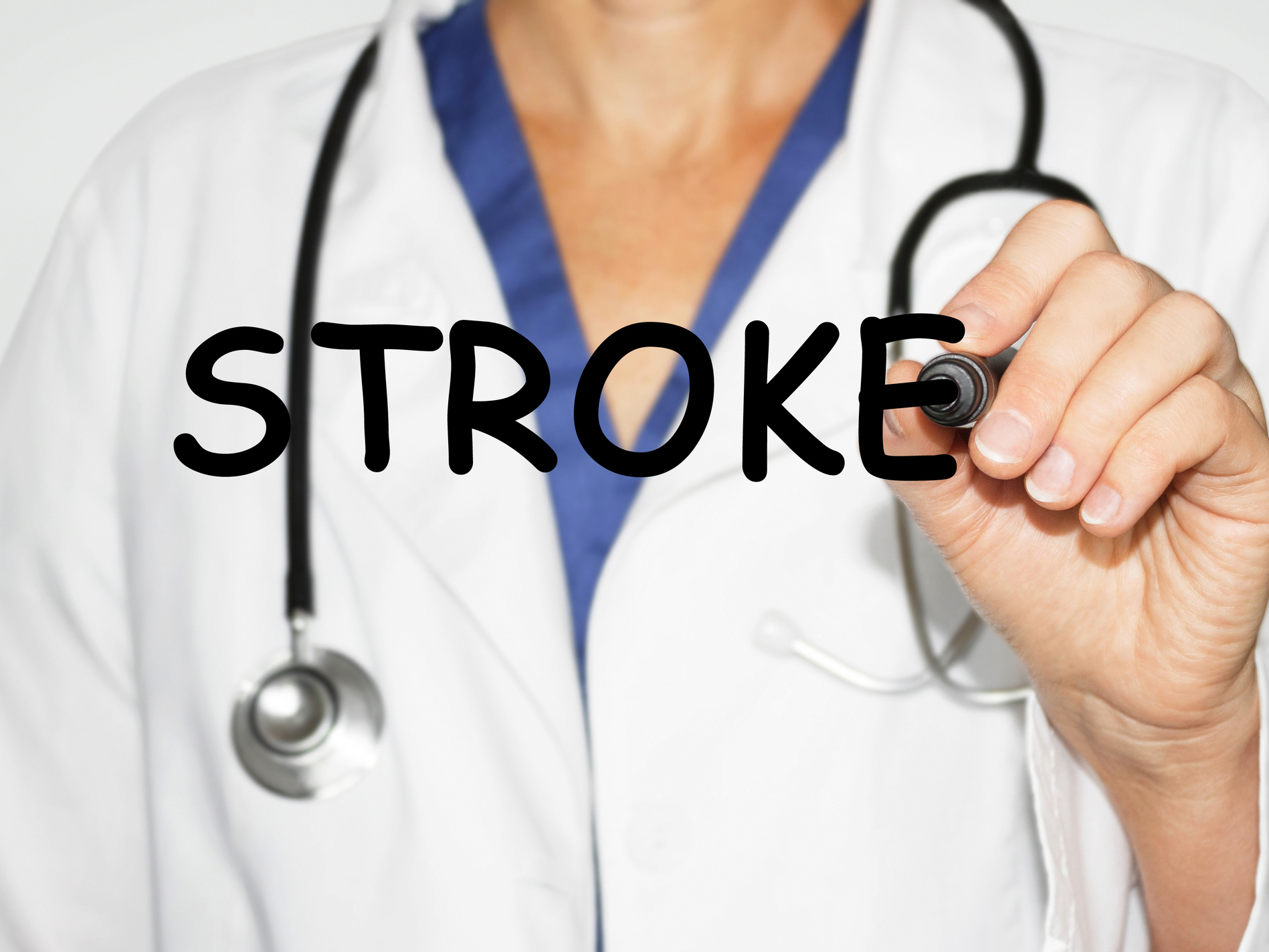Get Easy Health Digest™ in your inbox and don’t miss a thing when you subscribe today. Plus, get the free bonus report, Mother Nature’s Tips, Tricks and Remedies for Cholesterol, Blood Pressure & Blood Sugar as my way of saying welcome to the community!
Sleep apnea’s impact on your stroke risk

If you’ve ever lived with someone who snores, you know how agonizing it can be. You toss and turn, or go sleep in another room. You wake your partner, only to have them go right back to snoring as soon as they fall asleep again.
Living with a partner who snores can put a strain on a relationship, and cause sleep deprivation and all its attendant health risks. Poor sleep has been connected to chronic pain, brittle bones and a buildup of toxic waste in the brain that can become the tangled plaque of Alzheimer’s disease.
But consider for a moment the plight of the snorer. Sure, it’s hard to see how they are suffering. After all, they’re asleep, while you lie staring at the ceiling or holding a pillow over your head.
But habitual snorers are at extreme health risk. Research has defined a clear connection between one prevalent cause of snoring and the risk of having a stroke.
Sleep apnea: forgetting to breathe
Sleep apnea is a sleep-related breathing disorder that is most common in middle age. Often, but not always, people with sleep apnea are overweight.
Obstructive sleep apnea (OSA) is the most common type of sleep apnea. The airway is being closed off by soft tissue, causing loud snoring.
Daytime symptoms of OSA include drowsiness, headaches, short attention span, and memory loss.
Central sleep apnea (CSA) is less common but just as dangerous. Signals between the brain and the breathing mechanism misfire as a person sleeps, causing them to actually stop breathing until the brain becomes aware of carbon dioxide building up in the bloodstream, and tells the person to wake up and breathe.
Sleep apnea and stroke risk
According to this resource from the National Stroke Foundation, sleep apnea can be an after effect of stroke but can also be the cause of a first time or recurrent stroke. The condition causes low oxygen levels and high blood pressure, both of which can increase the risk of a future stroke.
Dr. Melissa Lipford, a neurologist at the Center for Sleep Medicine at the Mayo Clinic in Minnesota, looked at patients both with and without OSA who had experienced a stroke in order to pinpoint the connection between the two.
Basically, during sleep apnea, the body expends a lot of energy trying to open the airway and allow breathing to occur. But for all that effort, the brain doesn’t receive much oxygen in return.
When blood oxygen stays low, stress hormones are released and blood pressure goes up. Heart rate can speed up as well. When left untreated, these conditions persist, leading to uncontrolled hypertension and atrial fibrillation, or AFib (irregular heartbeat in the heart’s upper chambers) — two known risk factors for stroke.
A 2005 study in the New England Journal of Medicine also highlighted the connection between sleep apnea and stroke…
In that study, researchers looked at 697 patients at the Yale Sleep Center who had obstructive sleep apnea and compared them with a control group where sleep apnea was not present. In a follow-up study, the group with sleep apnea experienced 22 strokes and 50 deaths from all causes, as opposed to 2 strokes and 14 deaths in the comparison group.
What to do about sleep apnea
Your doctor can diagnose your condition by having you take part in a sleep study, or polysomnogram. This might be an overnight or daytime study. Your body functions will be monitored while you sleep, including breathing patterns, oxygen levels in the blood, heart rhythms and limb movements.
If you are diagnosed with sleep apnea, it’s likely that your doctor will suggest trying a Continuous Positive Airway Pressure machine, or CPAP. Its job is to send a constant flow of airway pressure to your throat so that your airway stays open while you sleep.
If a patient wearing a CPAP mask uncomfortable during sleep, there are a few other options.
An oral or dental appliance will hold the tongue in place during sleep, effectively keeping it from blocking airways. Patients with mild to moderate sleep apnea can use this device if they cannot tolerate a CPAP.
Surgery of the soft palate and uvula is another option, but one that comes with the usual risks, including bleeding and infection. Also, the benefits of surgery may not be permanent.
Home remedies. Sleep apnea is a serious health condition. However, there are steps that can be taken at home to alleviate snoring and other symptoms, particularly in mild cases.
Maintaining a healthy weight and abstaining from alcohol can make a difference. Alcohol relaxes the soft palate, making it more prone to blocking the airways. Using a humidifier and sleeping on your side are two other things that could help.
Editor’s note: What do you really know about stroke? The truth is, only 10% of stroke survivors recover almost completely, and all doctors can offer is what to do after a stroke occurs. That’s unacceptable considering 80% of strokes are preventable! Click here to discover how to escape The Stroke Syndrome: 5 Signs it’s Stalking You — Plus the Hidden Causes and Preventive Measures You’ve Never Heard About!
- Stroke and Sleep Disorders — National Stroke Association
- Sleep apnoea and stroke — Stroke and Vascular Neurology (SVN)
- Stroke Awareness Month: Untreated sleep apnea and stroke — American Sleep Apnea Association
- Obstructive Sleep Apnea as a Risk Factor for Stroke and Death — The New England Journal of Medicine














